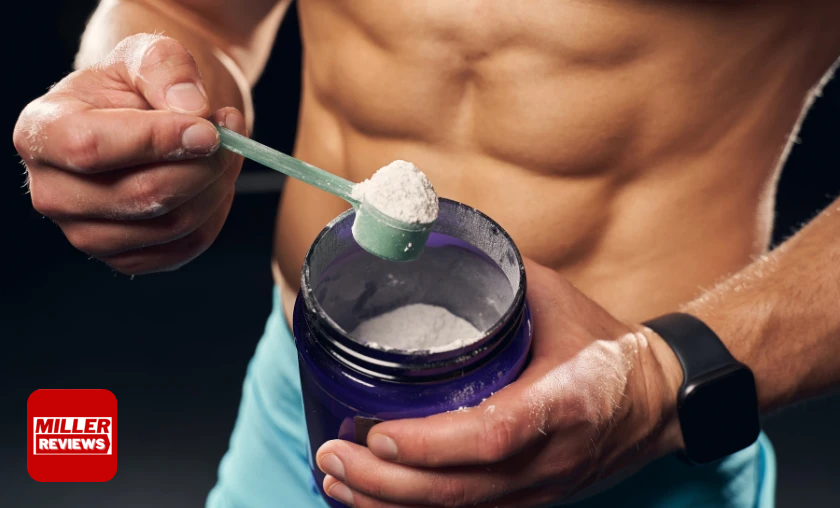Do think about “whether is supplementation even necessary for me or not” so, here we have found something just for you. Let’s Explore that…
There are vitamins, fish oil, herbs, minerals (including calcium), and other nutritional supplements available. If you’re taking one, you’re not alone. In the United States, around half of all adults do. Should you, on the other hand, do so?
According to Linda Van Horn, a professor of medicine at Northwestern University, this is an issue for your doctor or dietician.
When I see individuals taking one of these and another just because they heard someplace that a supplement is beneficial, it makes me nervous, says Van Horn. Imbalances can occur without warning and go unnoticed.
Food is the best because you get your vitamins and minerals. But sometimes it’s hard to eat enough fresh vegetables, fruits, whole grains, and other healthy options. A multivitamin is often a safe means of increasing your nutrients.
Table of Contents
Why Is Supplementation Even Necessary For Me:

Do You Need a Supplement?

The majority of healthy people do not require it. However, according to Jerlyn Jones, a registered dietitian, and spokeswoman for the Academy of Nutrition and Dietetics, certain people may require further assistance. If you are old, use particular medications, or don’t have easy access to nutritious meals owing to your income or where you reside, these are all valid reasons.
Talk to your doctor if:
You are or could become pregnant. you will not get enough iron from food, especially if you are nauseated. and all women who are pregnant, or trying to be, should take vitamin Bc. Prenatal vitamins offer you an added cushion of safety, says Van Horn.
Take care of a young child. Babies and young children may need help getting vitamin D and iron.
Eat a diet that is restricted or constrained. It’s more difficult to increase some nutrients, such as vitamin B12 or calcium, if you exclude specific dietary categories. What happens if you’re a vegan or have a dairy intolerance?
You are over 50 years old. Your body begins to absorb fewer vitamins D and B12 as you age. Once you get to the moment of life, you will have to take additional steps to urge enough.
Gastric bypass surgery was performed on her. It’s possible that your stomach doesn’t absorb nutrients as well as it should.
You have certain genetic or health conditions. you will have trouble absorbing nutrients if you have:
- Colitis or Crohn’s disease are examples of inflammatory bowel illness.
- Celiac Disease
- Cystic fibrosis
- Liver disease
- Cancer
- An autoimmune disease (such as pernicious anemia)
- Alcohol dependence
- A mutation in certain genes.
- Darker skin (can absorb less vitamin D)
Possible Deficiencies

If you think you’re lacking in certain vitamins or minerals, your doctor may recommend a biopsy to confirm your suspicions. If you’ve been vegan for a while, your vitamin B12, calcium, and vitamin D levels should be checked.
Regardless of the diet you follow, tell your doctor if you have these symptoms:
- Extreme hair loss
- Bone or joint pain
- Severe tiredness
- Irregular heartbeat
- Vision changes
- Wounds that heal slowly
Nutritional deficiencies are uncommon in the United States, where obesity is a far more serious health concern. However, according to Jones, there is growing concern that some Americans are deficient in certain nutrients. The following are some of the items on the list:
- Vitamin D
- Calcium
- Potassium
- Magnesium
- Iron
Supplements & Safety

Experts agree that there is nothing wrong with taking a multivitamin a day. But if you can also eat fortified foods and beverages, you may reassess the tolerable upper level (UL) for some nutrients. which will increase your chances of suffering side effects. Some can be mild, like nausea. But others, like bleeding, are usually serious.
(The supplements) are medicines in large dosages, according to Donald Boyd, MD, a licensed dietitian, and professor of drugs at Yale School of Drugs.
Dietary supplements are not regulated like drugs. which means there is no thank you for knowing exactly what they contain.
Always tell your doctor if you’re taking any medications. Some supplements, such as St. John’s wort and vitamin K, might make your treatment less effective. During surgery, you will bleed more. It’s possible that the anesthesia won’t work properly.
Certain supplements deserve extra caution. Boyd says they include:
- Beta-carotene and vitamin A. High doses can increase the chance of carcinoma if you smoke. If you are pregnant, vitamin A in the form of retinol can make your baby more likely to have birth defects.
- Antioxidants Excessive use of vitamins like C and E can trigger tumor growth. They will also interfere with your cancer treatments.
- B12 vitamin. The newer supplements have very high doses. You will get side effects like anxiety, dizziness, or headaches if you are taking too much.
- Vitamin D. Too much of this will cause a build-up of calcium (hypercalcemia). that will offer you kidney stones.
Research on Supplements

Certain dietary supplements have been shown to help. For example, calcium and vitamin D can reduce bone loss and fractures. But many products, including herbs like ginkgo, lack strong evidence for their health claims.
And if any supplement says it can cure dementia or Alzheimer’s disease, do not believe it.
Here’s what the research says about some popular options:
- Fatty acids of the omega-3 variety are a kind of carboxylic acid. Animal studies suggest that oil can improve heart health, blood flow, and inflammation reduction. Human research is clearly insignificant. However, some research suggests that it might:
- Relieve symptoms of atrophic arthritis, when taken with other RA medications
- Reduce triglycerides, when taken by prescription
Research continues to demonstrate the benefits of omega-3 supplements.
- Vitamins This is a heartfelt thanks for resolving a vitamin deficit. Multivitamins, on the other hand, are unlikely to help you live longer or reduce your risk of long-term health issues. Do you know anybody with heart disease, cancer, or diabetes? Furthermore, there is no proof that vitamins can improve your ability to think or recall.
- Age-Related Disease Supplements (ARED). A particular mix of antioxidants, zinc, and omega-3 fatty acids can hamper ARED.
Tips on Use & Storage

Always ask your doctor first, especially about what ratio to require, advises Jones. Good rules to follow include:
- Don’t re-evaluate your recommended daily value (DV) for vitamins and minerals unless your doctor says it’s okay.
- Multivitamins do not have 100% of your DV for calcium or magnesium. you will need a separate supplement.
- Buy USP, NSF, or other third-party “seal of approval” marks.
It may be easier to remember that you need your vitamins if you keep them in your bathroom. But light, moisture, and medicine can make a poor combination. Keep your supplements in a cool, dry place, like on your dressing table.
For More amazing articles related to Fitness Check out our website Over Here
To Read more similar articles click here
Thanks for visiting our Website. If you appreciate our work, kindly show us some support in our comments section 🙂